Relevant Overviews
- Communication Strategy
- Content Strategy
- Online Strategy
- Online Community Management
- Social Media Strategy
- Content Creation & Marketing
- Online Architecture
- Digital Transformation
- Change & Project Management
- Fediverse
- Innovation Strategy
- Surveillance Capitalism, Social media and Polarisation (Overview)
- Disinformation in the US 2020 elections
- Communications Tactics
- Psychology
- Social Web
- Media
- Politics
- Communications Strategy
- Science&Technology
- Business
Interesting ideas but innocent of how they could create as much harm as good."The internet caters to our baser interests... like wanting to be healthy, but finding yourself in a food court where the only options are burgers and milkshakes. What option do we have but to be our baser selves?... But what if we created an arena of virtue ... wou…

Fleeting Note (FN): the creation of Fediverse-based alternatives might suddenly become an urgency.
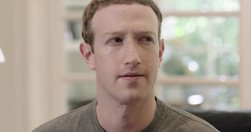
"Facebook quietly stopped recommending that people join online groups dealing with political or social issues", and will "assess when to lift them afterwards, but they are temporary." This part of the Facebook's AI plays a key role in pushing "people down a path of radicalization... groups reinforce like-minded views …
Summary of peer-reviewed research - “Understanding Echo Chambers and Filter Bubbles: The Impact of Social Media on Diversification and Partisan Shifts in News Consumption” - by its authors, who found:more time spent on Facebook, the more polarized their online news consumption becomes...Facebook usage is five times more polarizing for conservative…

“It’s so easy to feel you’re special or in on something.” - James Wolfe, 45, who was "introduced [to Qanon] by a friend to the idea in late 2017... [when he] was recently unemployed and recovering from a serious physical injury", and quickly "started spending as much as eight hours a day" before recovering "from QAnon aft…

echo chambers and epistemic bubbles... systematically exclude sources of information... exaggerate their members’ confidence in their beliefs... work in entirely different ways... epistemic bubble is when you don’t hear people from the other side. An echo chamber is what happens when you don’t trust people from the other side...‘epistemic bubble’ …

Newspaper newsrooms lost 45 percent of their employees between 2008 and 2017... growing number of “news deserts”: communities where there are no longer media outlets sending reporters to city-council meetings... Can a healthier news ecosystem be built? ... a role for government in ensuring citizen access to reliable information... “There was alw…

This month sees the first generation of Hubs (other than mine) go live, so it’s time to imagine what comes next: AI integration? Filter-bubble Piercers? HubBots? Factcheck-driven credibility scores?
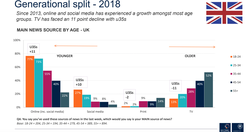
echo chambers and filter bubbles are slightly different... echo chambers could be a result of filtering or ... other processes, but filter bubbles have to be the result of algorithmic filtering...people main source of news roughly equal ... online and television... TV is more likely... people over 45. People under 45 are more likely to get their n…
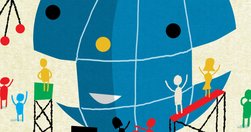
In the US, radio began as a free-market free-for-all. More than five hundred radio stations sprang up in less than a decade to explore the possibilities... 40 percent were noncommercial... network of interlinked stations playing local and national content supported by local and national advertising, became dominant players...Soviet Union... ideolo…
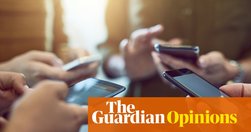
the bubble machine creates a politics of purity... I am not telling anyone to be mates with racists or stop being leftwing. I am just asking that we be less comfortably numb. The result of not speaking to those who don’t inhabit our precious bubbles will confront us this week
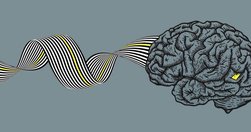
How fake news gets into our minds, and what you can do to resist it... to understand why it gets into our mind... by examining how memory works and how memories become distorted.... Fake news often relies on misattribution ... we retrieve things from memory but can’t remember their source... one of the reasons advertising is so effective... Repe…

report reviews and summarises the recent available literature connecting polarisation and the news media...key findings...: little evidence that increased exposure to news featuring like-minded or opposing views leads to the widespread polarisation of attitudes... some studies found both can strengthen attitudes of minority who already hold stron…

many activists working to create positive change ... seem to think that if they just get their ideas to “go viral” they will ... dominate the discourse. The great lie of this approach is that no singular discourse exists! Each community is now capable of building consensus with itself, where the like-minded talk to others like themselves while fo…

reddit community called Change My View ... a ready-made natural experiment ... feed it into programs ... to understand the back-and-forth between human beings ... discovered two things: what kind of arguments are most likely to change people’s minds, and what kinds of minds are most likely to be changed. https://www.reddit.com/r/changemyview/ : po…
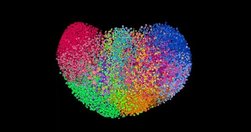
societies have experienced extremism and fragmentation without the assistance of Silicon Valley for centuries... So just how responsible is the internet for today’s divisions? In this Twitter map... of the US political landscape, accounts that follow one another are clustered together, and they are color-coded by the kinds of content they commonly…

Technology has altered the foundations of news and media, and as trust in media continues to decline, artificial intelligence, machine learning, and algorithms have come to play a critical role not only as threats to the integrity and quality of media, but also as a source of potential solutions. The core threats to information quality associated …
concern that social media sites contribute to political polarization by creating ``echo chambers" that insulate people from opposing views ... We find that Republicans who followed a liberal Twitter bot became substantially more conservative post-treatment, and Democrats who followed a conservative Twitter bot became slightly more liberal post-tre…

algorithm is the single most important engine of YouTube’s growth... one of the “largest scale and most sophisticated industrial recommendation systems in existence”... Lewd and violent videos have been algorithmically served up to toddlers ... “We learned to fuel it and do whatever it took to please the algorithm.”... how did that happen? And wha…
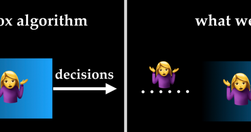
Over the coming years, we’ll see the BBC develop and roll-out more and more machine learning algorithms for storing, retrieving, tagging and possibly even creating content.... What if we lock our audiences in to what they just want to hear, never challenging them? ... Should the algorithms we use be open to public scrutiny?... inform our own thin…
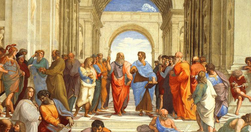
we evolved to solve complex problems not independently but dependently in a group setting.... the knowledge illusion... much of our “knowledge” is not knowledge in the sense of understanding how things work but ... faith... in other people -... smart people with PhDs... whatever - who I trust to know these things that I do not know.... for tho…
Mom did a very brave thing, considering where and when she lived... She watched a TV documentary about transgender identity... She let it change her thinking. .. turned to me during a commercial break and said, “I think maybe sometimes God makes mistakes.”... never spoke an unkind word about gay, lesbian, or transgender people after that day. For …

“We wanted democracy... but got mobocracy.”... Bots generated one out of every five political messages posted on Twitter in America’s presidential campaign last year... “we need to reform our attention economy.”... groups which had mostly been excluded from the mainstream media... developed the dark arts they would use to further their agendas..…
small experiments aimed at customizing that story selection to the individual reader, based on a variety of signals... where readers are located... the last time a reader visits the site. If,... publishes a particularly enterprising story on a Monday, but a reader doesn’t visit ... after that story has left the homepage ... personalize the user’s…
In the realm of knowledge, monopoly and conformism are inseparable perils. The danger is that these firms will inadvertently use their dominance to squash diversity of opinion and taste. Concentration is followed by homogenization... news media ... have rushed to produce articles that will flourish on those platforms... a duplication of the news…
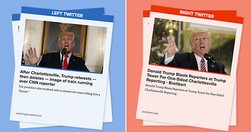
After violence erupted in Charlottesville, Virginia, on Aug. 12, media coverage differed on what aspect of the event to cover... we looked at what partisan Twitter users shared ... found a clear split ... Despite the split narratives ... the voting base has been less conflicted.

Approximately 1–3% of users in the sample get these ‘very different’ results when searching for the query terms. Perhaps less headline-grabbing than fake news in this regard are special interest and lifestyle media, which feature heavily in the personalized results. I think we need more research on the relevance of these sources for political comm…
Our findings confirm the existence of echo chambers where users interact primarily with either conspiracy-like or scientific pages.... Only few conspiracy users engage with corrections and their liking and commenting rates on conspiracy posts increases after the interaction.

Instead of having to look at what weird things other people are interested in... Google shows me the weird things I’m interested in... a fundamental shift in content consumption from curation based on our explicit choices to curation based on our implicit preferences mined from past behavior.
our analysis shows that social media use is clearly associated with incidental exposure to additional sources of news ... with more politically diverse news diets... The algorithms, of course, continually change... More sources does not necessarily mean more diverse... the majority in most countries and in most groups do not use sources from a…
Relevant Overviews
- Communication Strategy
- Content Strategy
- Online Strategy
- Online Community Management
- Social Media Strategy
- Content Creation & Marketing
- Online Architecture
- Digital Transformation
- Change & Project Management
- Fediverse
- Innovation Strategy
- Surveillance Capitalism, Social media and Polarisation (Overview)
- Disinformation in the US 2020 elections
- Communications Tactics
- Psychology
- Social Web
- Media
- Politics
- Communications Strategy
- Science&Technology
- Business